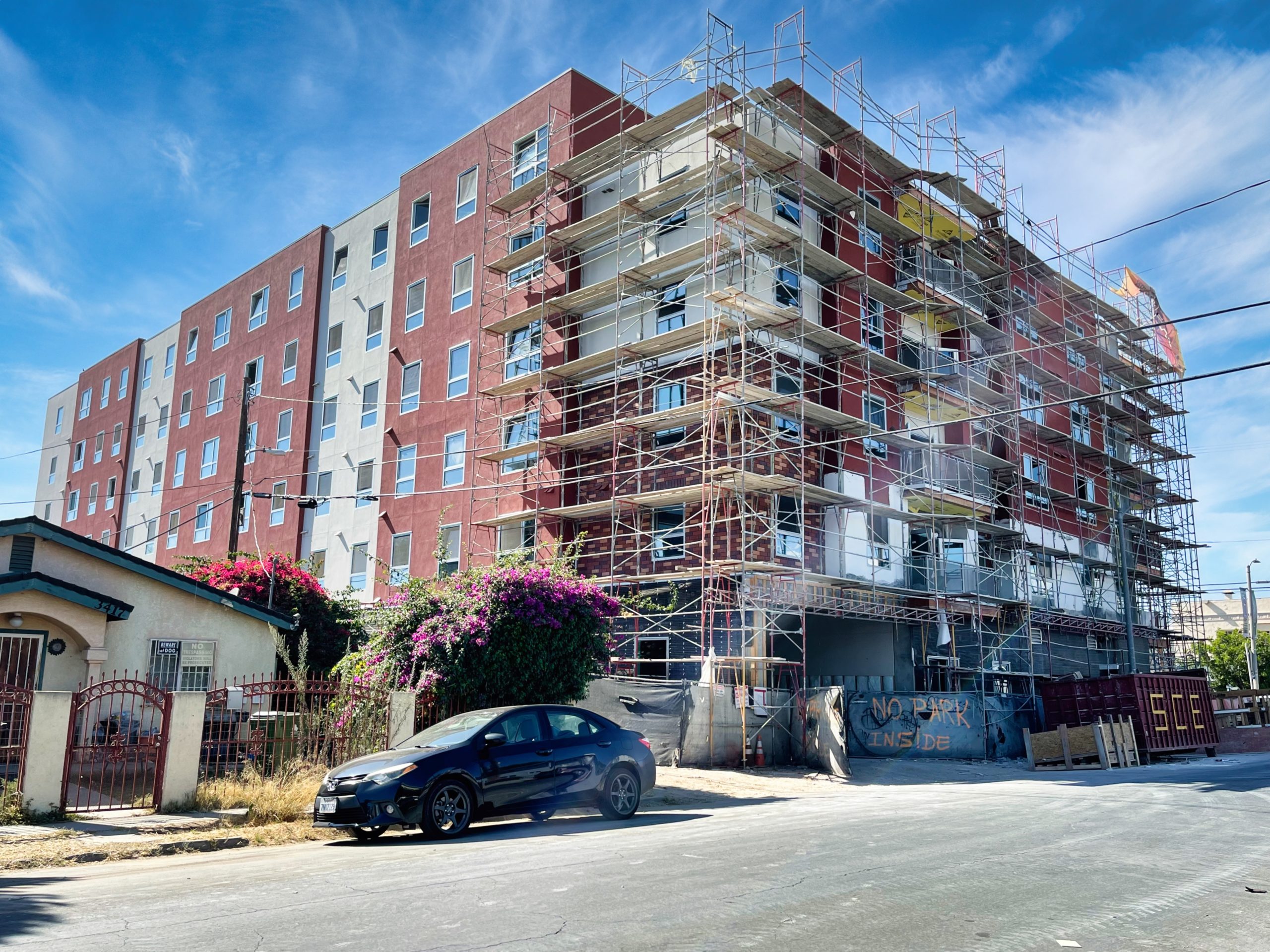
September 28, 2023
By SAJE Staff
Over the next two decades, California will be undertaking a massive, unprecedented effort to decarbonize buildings throughout the state. Senate Bill 48 will soon require state leaders to develop a strategy to reduce the greenhouse gas emissions from residential and commercial buildings. And, in 2024, California will begin implementing the $1 billion Equitable Building Decarbonization Program to provide decarbonization retrofits to low- and moderate-income households.
All of these measures are vital to addressing climate change. However, they may lead to eviction, harassment, rent burden, and the displacement of working-class renters if the right safeguards are not in place as they are implemented. For example, landlords may pass along the cost of mandatory decarbonization retrofits through rent raises rather than paying out of pocket or using a subsidy program. Or, they may use retrofit work as an excuse to evict tenants who are paying below market rates in rent-controlled units.
SAJE’s new report, Decarbonizing California Equitably: A Guide to Tenant Protections in Building Upgrades/Retrofits throughout the State, looks at some of the potential effects of decarbonization mandates on tenants who live in private rental housing. It also includes policy recommendations to ensure that residential building decarbonization efforts do not inadvertently worsen the state’s affordable housing and homelessness crises.
Decarbonization is a necessary step in making California healthier and more resilient for everyone. But tenants—millions of whom are already struggling to pay their rent—should not have to shoulder the costs of decarbonizing housing. If we don’t have good policies in place to protect tenants, we will see rents rise, affordable units shrink, and families displaced.

